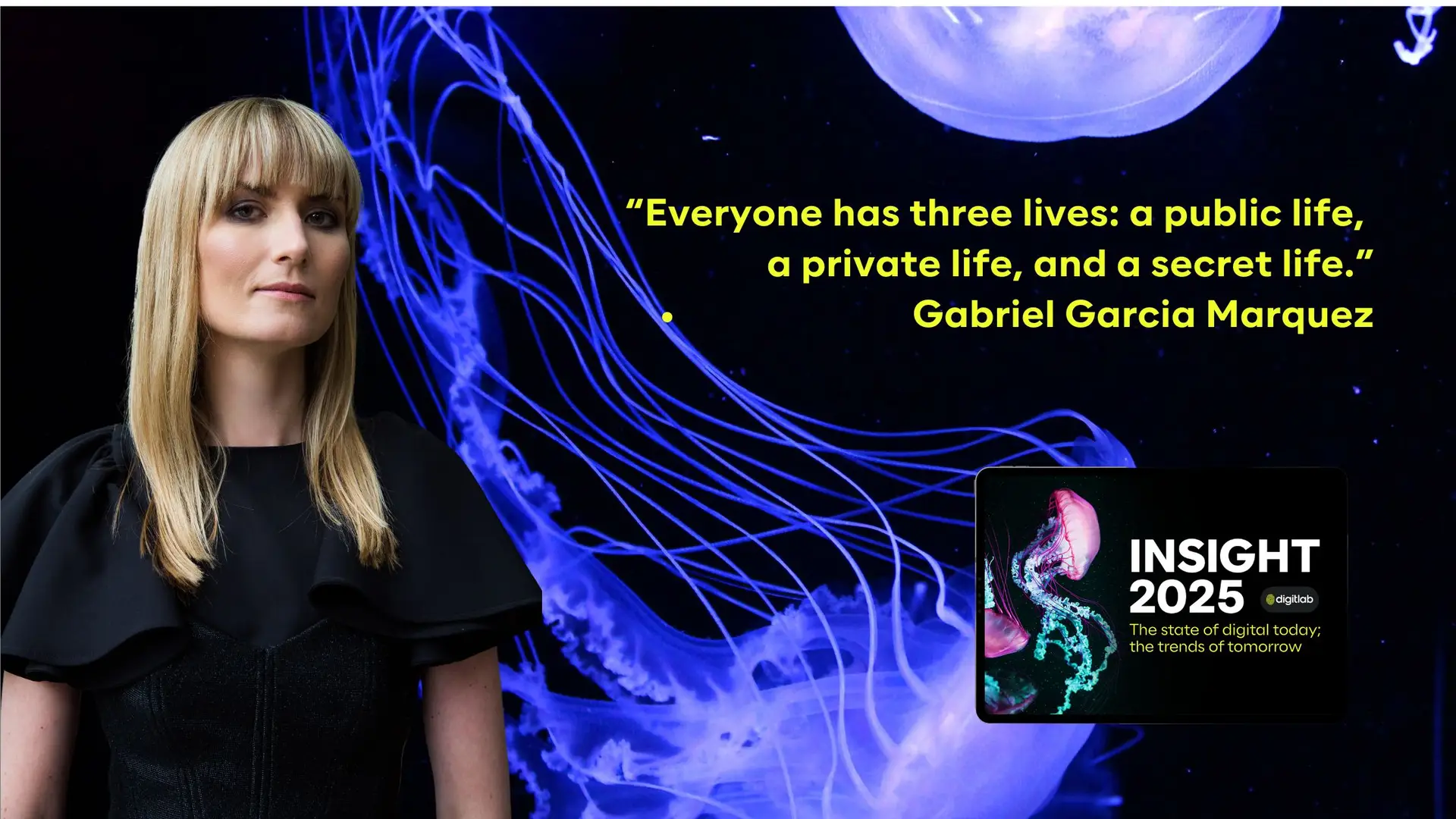We’re excited to feature a compelling guest contribution to our blog by one of the brilliant minds behind Insight 2025 – Bronwyn Williams, Trend Analyst at Flux Trends. This thought-provoking exploration serves as a must-read for anyone seeking to understand the multifaceted nature of identity in our ever-shifting societal landscape.
Our research for our Flux Trends x Student Village 30/30/30 project, which comprised 30 in-depth interviews with 30 young South Africans, 30 years on from democracy, among other insights, highlighted how fragmented the concept of “identity” has become for young people in general, and Generation Z (defined in our study as youths born post-apartheid in South Africa up until 2014).
While Millennials and older generations were encouraged to “show up” with a consistent, considered personal brand identity throughout all aspects of their lives, and “bring their whole selves to work”, today’s youths are adopting a different, more faceted approach to public, personal and private identity. Whereas before, personal consistency was a virtue, today, in the age of “cancellation” and identity theft, having a homogenous personal identity is a liability and a repetitional risk. In the age of de facto (if not explicitly, as anyone who has travelled to the Republic of China will attest to) “social credit” where all data and social status is credit data that limits or enhances your access to goods, services and opportunities, it makes sense to hedge your bets by distributing your identity and reputation, just as a financial advisor would advise an investor to invest in a distributed financial portfolio rather than put all your proverbial eggs into one proverbial basket.
Of course, young people have always behaved differently with their families compared to their friends. We have always had secrets and kept parts of ourselves to ourselves. However, social media and technology have increased the number, complexity, and value of strategically (cynically?) crafting and curating multiple simultaneous personalities across multiple platforms, both online and off to maximise points in various human status games – from sex and romance to work and business – and fame and influence.
In their own words:
“I spend most of my time on Instagram. I use my Instagram like I decided to have two accounts, my personal page and my work page.” – Sizwe (Black, male)
“I have got two Instagrams. One is my daily, normal Instagram. And then I have got like, I think they call it a spam account or a dupe account. I call it a spam account. Where it’s more for my close friends and I feel more comfortable posting my daily, what I do every single day.” – Rebecca (20, White, female)
There is, therefore, strategic fragmentation.
As Timmu Tõke, CEO and founder of Ready Player Me, says, “… ultimately you will likely land on a few different identities. You will not use an infinite amount because you still want to create some kind of a connection and maybe live out different parts of your own character in those identities.”
This is not a case of having a schizophrenic identity, but rather a set of faceted identities that put together all still link to the whole. It is understanding that, in and always on, always connected, always surveilled world, we have to be very conscious about what facets of our personality we’re showing to what people and what groups at what time – because those attributes could be used against us, to extort money from us through “dark” personalised AI-smart advertising, or to get us in trouble with the law, as freedom of speech is increasingly under threat from the law. Information is power and withholding as well as sharing it should be done with an understanding of the risks and rewards at stake.
This attitude is not unrelated to concerns around impending digital public infrastructure and related national digital identities – and calls to ensure such developments are centred on “self-sovereignty”. Self-sovereignty here is the right of individuals to ensure any identity markers that could enhance or restrict their freedom of movement or access to services, goods or opportunities are only shared with government officials, law enforcement, banks, lenders, employers, traders (or even romantic partners) on a need-to-know consent based basis that preferences personal privacy over universal surveillance without compromising fairness or security.
And, critically for brands and businesses to understand, no, young people will not be “bringing their whole selves” to work or to your brand advertising algorithm. You will get only what you pay or bargain for. It is now a fundamental mistake to confuse the parts of your customer’s personality or (increasingly) the one-dimensional AI avatar agent they chose to share with you, as their “whole self”. Rather you have to understand that you are only working with a select section of puzzle pieces – infer or assume the rest of the picture at your peril.
You can read more from our other contributors and download the full report here: https://digitlab.co.za/digital-trends-report/






